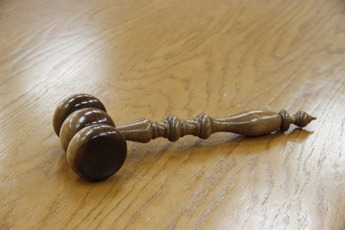New sexual violence court process to be piloted in Whangarei and Auckland
Wed 09 Nov 2016
The District Court has announced that a new process for sexual violence cases will be piloted in Whangarei and Auckland from December 2016. Under ...

The District Court has announced that a new process for sexual violence cases will be piloted in Whangarei and Auckland from December 2016.
Under the pilot, these District Courts and their satellite courts will deal with sexual violence cases at a regular time and place, instead of within the daily mix of other cases.
The pilot will cover all serious (Category 3) sexual violence cases to be heard by a jury in Whangarei and Auckland District Courts, and from their satellite courts. The pilot will last for 2 - 2.5 years.
In a Law Society article introducing the pilot Chief District Court Judge Jan-Marie Doogue said "The aim has been to bring together like cases to assist in the cohesive and consistent application of applicable legal principles within existing legislative frameworks."
The District Court's Sexual Violence Court Pilot - Frequently Asked Questions document outlines some of the differences in the process:
"Pre-trial case management by the judge will be more intensive and pro-active. The judge will have specialised training in sexual violence offending and be able to draw on Best Practice Guidelines. The timeframes for bringing a case to trial should therefore be shorter, reducing some of the uncertainty that people involved in these cases find distressing."
The Guidelines for Best Practice are included in Chief District Court Judge Jan-Marie Doogue's Law Society article. The education programme is currently being developed. Training through the programme will be provided initially to the 20 judges involved in the pilot in January and then extended to all District Court Judges through the Institute of Judicial Studies.
The Law Commission report Justice Response to Victims of Sexual Violence: Criminal Trials and Alternative Processes (2015) recommended piloting a specialist sexual violence court. Judge Doogue stated "Providing specialised education and reducing delays addresses two elements of the Law Commission report."
Judge Doogue said "In the absence of law change, other Law Commission recommendations such as having accredited prosecutors, competence requirements for defence counsel, and alternative trial practices – including alternative ways to give and cross-examine evidence – fall outside the pilot scope."
Justice Minister Amy Adams said that the Government was looking at changes which could be made within the existing court framework, rather than changing from an adversarial to inquisitorial system.
The District Courts said approximately $300,000 has been budgeted for the pilot this financial year. Justice Minister Amy Adams said the Government's Justice Sector Fund has allocated $130,000 over the two years to support the implementation and evaluation of the pilot.
Chairperson of the Te Ohaakii A Hine- National Network Ending Sexual Violence Together (TOAH-NNEST) Tauiwi caucus, Maggy Tai Rakena said "Over the course of many years trying to support children, youth and adult victims of sexual violence to navigate New Zealand’s court system, the sector has been repeatedly disappointed by the lack of understanding demonstrated by many involved in all aspects of the court system. Judges live in our communities and are affected by public misconceptions about sexual violence. It is wonderful to hear that a professional education programme will be made available to them and thereby better enable them to undertake their complex role."
National Survivor Advocate Louise Nicholas supports the pilot saying "It's about judges understanding the nature of the survivor and the trauma they go through - you can get women and men who are upfront and say it how it is, and then on the other hand you can get victims who are upset and struggle to speak in court."
Auckland University Law Lecturer Khylee Quince asked whether the specialised training will also consider the unique needs of Māori. She said, "One of my concerns is the fact they've talked about the need to have specialist training for judges, but we need to know what the specialist training is. So it should be about dealing with Māori as well as dealing with the specialist nature of sexual violence and how those dynamics work."
For more information about reforms sexual violence legal processes see the previous NZFVC stories:
Debate on changes to improve court processes for victims of sexual assault
Law Commission publishes report on justice response to victims of sexual violence
Bill to make court less traumatic for children and victims of sexual offences
Media
Speedier trial for North sexual violence cases, The Northern Advocate, 21.10.2016
Pilot pushes for faster process for sexual violence cases, Radio NZ, 20.10.2016
NZ to get its first sexual violence court in wake of Roastbusters case, One News, 20.10.2016
Image: Pixabay


